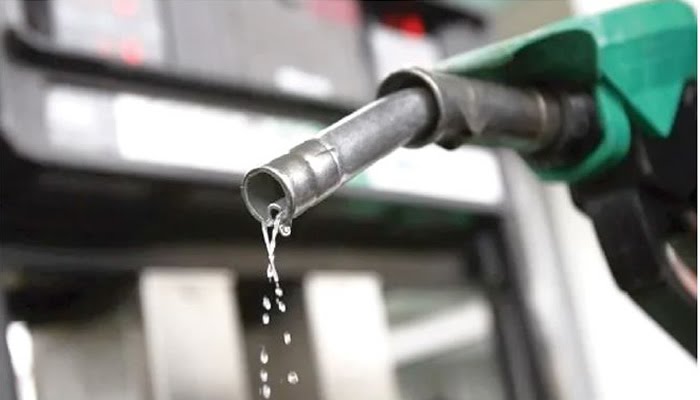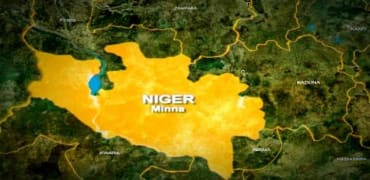Why Nigeria will Keep Importing Petrol: Unveiling The Hidden Truth Behind The Country's Fuel Crisis
"Why Nigeria Will Keep Importing Petrol: Unveiling the Hidden Truth Behind the Country’s Fuel Crisis"
Yakubu Haruna Yakubu
Despite Nigeria’s rich oil reserves and multiple efforts to expand domestic refining capabilities, the nation’s reliance on imported petrol is set to continue in the short to medium term. A deep dive into the country’s fuel dynamics reveals that government deregulation policies, insufficient modular refineries, lack of funding, and a struggling foreign exchange market are key factors stalling the dream of self-sufficiency.
The Unmet Expectations of Domestic Refining
Hopes were once high that Nigeria’s more than 20 modular refineries, along with planned mega-projects like the Dangote Refinery, would meet the country’s daily petrol demand of 50 million liters. These modular refineries, including the Edo Refinery (12,000 barrels per day), Duport Midstream (2,500 bpd), and the Niger Delta Petroleum Refinery (11,000 bpd), are only designed to produce diesel, kerosene, and other petroleum products—not petrol.
Dr. Bala Zakka, a Port Harcourt-based energy analyst, explained, "These refineries were never set up to refine petrol. While they help alleviate some fuel-related issues, Nigeria’s domestic market still relies heavily on imported PMS."
Who Is Keeping Nigeria Fueled?
With domestic refining falling short, several companies have stepped in to ensure Nigerians have access to petrol. Players like Matrix Energy, A.A. Ranno, NIPCo, AY Shafa, and Petrocam are now spearheading the importation of petrol under the current deregulation regime. According to industry insiders, this government policy, which allows operators to source products from both local and international markets, is the main driving force behind the continued reliance on imports.
The landing cost of petrol has soared by 4% from September to October 2024, reaching N956.13 per litre, driven primarily by fluctuations in the naira-to-dollar exchange rate. This has pushed pump prices in the domestic market beyond N1,000 per litre.
Industry Experts Speak Out
Joseph Ehimen, Chairman of the Lagos chapter of the Petroleum Products Retail Outlets Owners Association of Nigeria (PETROAN), shed light on the market dynamics, stating, "Deregulation promotes competition and gives us the flexibility to source products locally or internationally. While the Dangote refinery holds promise, we are open to sourcing from any viable option."
He highlighted the challenges facing the business environment, citing high interest rates that have jumped from 18% to a staggering 40%, making it more difficult for marketers to sustain operations.
Dr. Joseph Obele, National Public Relations Officer of PETROAN, added that many retail outlet owners are struggling to cope with rising costs. "A truck of PMS, which cost N7 million before the subsidy removal, now sells for N47 million. This 500% increase has left about 10,000 operators financially handicapped," Obele said, while appealing to the federal government for a N100 billion bailout.
The Independent Petroleum Marketers Association of Nigeria (IPMAN) echoed similar sentiments, urging members to explore both domestic and international markets for fuel supplies to meet demand.
The Cost of New Refineries: A Long Road Ahead
While Nigeria’s refining history dates back to the construction of the first Port Harcourt refinery in 1965, today’s reality is more complex. The nation’s four refineries, with a combined installed capacity of 445,000 barrels per day, have struggled to meet rising demand, and the energy transition is now complicating efforts to secure funding for new projects.
An anonymous investment banker explained, "The global shift towards renewable energy makes it difficult for countries like Nigeria to attract the necessary capital for fossil fuel projects. Coupled with the forex crisis, the path to expanding domestic refining is long and uncertain."
Exploring Alternatives: The Push for CNG
With petrol prices skyrocketing, Nigerians are being urged to consider alternative fuels like Compressed Natural Gas (CNG). Adetunji Oyebanji, Managing Director of 11Plc, advocated for CNG as a viable option for both motorists and households.
"As competition in the fuel market grows, consumers will have to make informed decisions on where to buy from. This is the time to seriously consider alternatives like CNG, which could offer a more stable and cost-effective solution," Oyebanji said.
The Bottom Line: A Continuing Reliance on Imports
Despite lofty ambitions and ongoing efforts to build refineries, Nigeria’s petrol importation looks set to continue for the foreseeable future. The combination of deregulation policies, insufficient refining capacity, and broader economic challenges makes it clear that, for now, the dream of energy independence remains just that—a dream.





















